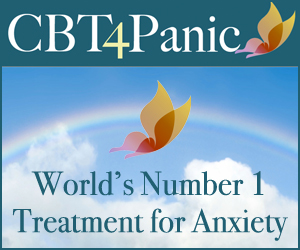3 Major Focuses of Recovery for Optimized Mental Health
Focus on the Individual
The focus of recovery should be on the person or the individual and not the process of treatment. There is a constant shift in the manners by which people suffering from psychological disorders are being treated.
During the past centuries, due partly to the drive to establish more reliable and effective treatment methods, most mental health professionals fail to focus on the process occurring in a patient, the changes he is undergoing throughout the treatment and the improvements that are associated with the treatment.
Instead, the common point for most practitioners is the process of treatment itself- whether or not one treatment is more effective than the other or whether or not a specific therapy could actually work for all patients.
It is a good thing that mental illnesses are viewed now from the sufferer’s perspectives rather than the technicalities of the treatment or therapy. Individuals have various presentations of a mental disorder. Thus needing individualized forms of recovery treatments that are curtailed to the person’s preferences, unique characteristics such as resiliency, strengths and weaknesses, cultural background and experiences.
Focus on the Community
It should be grounded on peer support – External support is invaluable in the process of recovery. Knowing that there are other people who, like the patient, also struggle to achieve the state of well being they want to achieve. It helps for them to know that there are people who cares for them, who wants to see them gain back their life and who shares the same sufferings as they do.
There should exist a mental health support group that would guide and enlighten the patients with the reality of the psychological disorder. This also provides the mutual support that is needed in gaining skills and knowledge on the disorder which is a contributory factor towards improvement.
Focus on Issues Surrounding Mental Wellness
It should be well-directed – A direction set by both the mental health providers and the patient should be prepared during the initial stage of recovery. The patient determines the pace of healing while the mental health professional facilitate the direction.
It should be non-linear – This perspective adheres to the belief that a recovery process is both an end and a process. It is not the usual step-by-step process that has varying levels. In mental health recovery, it is possible that a person who has already overcome the symptoms of a mental disorder could still be troubled by the relapse of the same symptoms. It is, in fact, a trial-and-error process with the promise of development and usual setbacks.
It should be holistic – The concept of holism should be fully integrated into the process of recovery. Recovery from a mental disorder does not only cover specific and separate issues like biological or psychosocial aspects of the disorder. Instead, it affects a person in an extensive manner. Thus recovery should also focus on the micro as well as macro issues surrounding the disorder.
Lastly, the process of recovery should be empowered by hope matched by the motivation and willingness to break free from the mental illness. This could only be achieved when all individual factors – the perspective of the individual and the direction he is taking, the support of external groups such as the family and peers and the right frame of mind.










